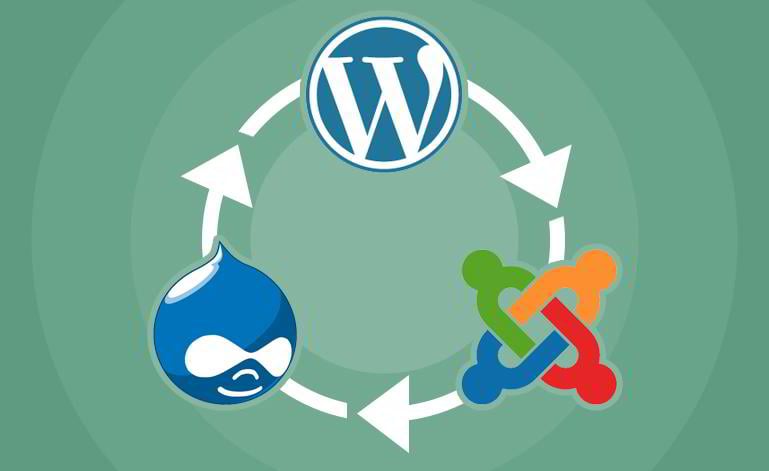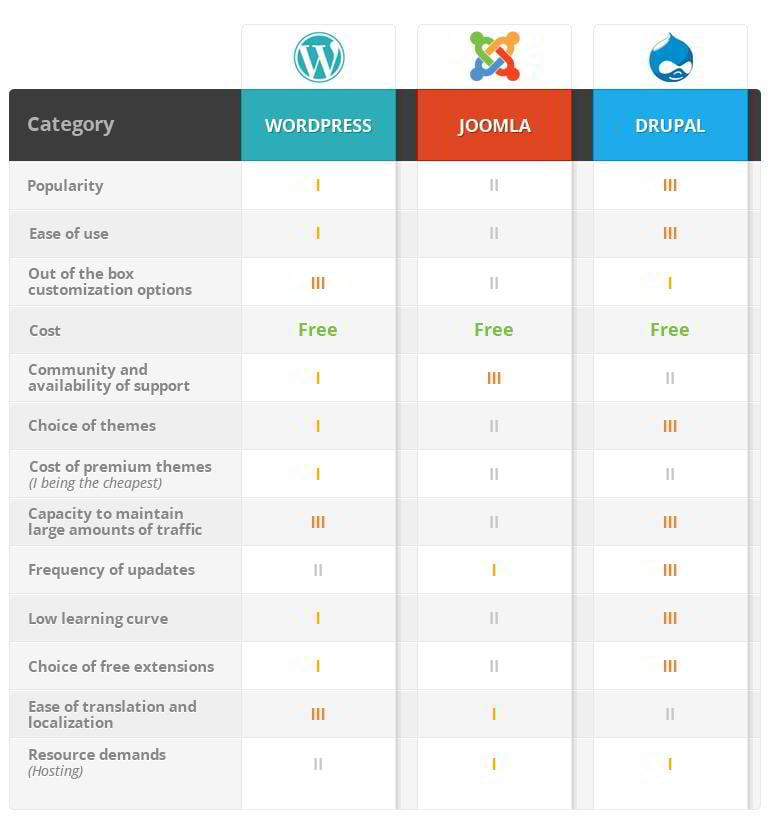How to choose the right CMS for your website – Open Source CMS Comparison
How to choose the right CMS for your website - Open Source CMS Comparison
You’ll Learn About:
- What is a Content Management System?
- What is an Open Source CMS?
- Which CMS should you choose: Drupal, Joomla or WordPress?
- Comparison chart of the most popular CMS platforms
1. What is a content management system?
A content management system (CMS) is an application that allows you to create and run your website. You will get an admin panel - an interface where you can create and update pages, posts and other types of content (images, videos, etc) and arrange the content the way you need.
You will also be able to change the design of the site through the admin panel by installing themes (design templates) and changing them when you want. All the actions are done simply by clicking buttons - you will not have to write codes or scripts in most cases.
2. What is an Open Source CMS?
The leaders in CMS world are WordPress, Joomla and Drupal. Not only are they free but also they are open source CMS engines. That means their source code is open to the public.
You can use, edit and customize the core files of the engine on your site and if you discovered a great way to improve the platform, you can pitch it to the developers and help making their engine even cooler in the next update. More information about the term "open source" and its set of values you can find in this article.
Anyway, let’s analyze these open source CMS platforms together.
3. Which CMS should you choose?
There are three giants in the CMS world: Drupal, Joomla and WordPress. They have been around since 2000, 2005 and 2003 respectively, and there are no rivals for them outside this trio. All three platforms are free. Each has an army of worshipers. But how can you know which CMS is best for you?
Let us analyze each of these platforms one by one, with the most popular first.
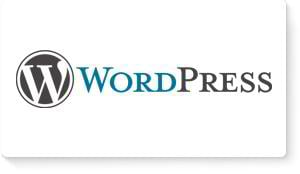
Managing your content with WordPress is perfectly simple: you create a page, add it to the menu, post something on it and see your content on the front-end of your site. All that adds up to a preeminent CMS platform. So why do so many people choose WordPress for their site? Because WordPress is the easiest CMS to use.You can install it free on your computer to test it.
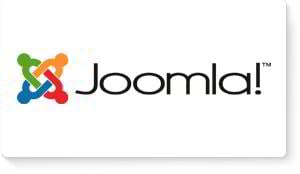
On the other hand, Joomla extension developers and community have come up with many inspired solutions to common web design problems that are hard to resolve within WordPress. If we take any Joomla slider extension as an example, you can set its location on the page, the duration for showing each slide, the sliding effect and the type of pagination.
In a nutshell, Joomla CMS is a good choice if you have this unending curiosity and eagerness in you to learn. Even though it takes time and effort to get used to its peculiarities, people very often fall in love with Joomla. Feel free to check our Joomla Startup course with all the info you'll need to launch your first project on Joomla.
You can install it on your computer to try and test it as well.
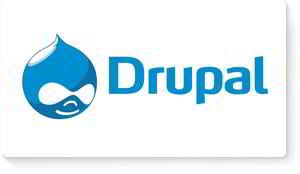
Lots of things which, in WordPress or Joomla, would require custom coding, have ready-made solutions in the default Drupal. And it can be enhanced even more with third-party extensions. But I will be honest with you - learning to operate it is a real challenge. It takes a lot of work and patience to master.
"Drupal is to other CMSs as Man of Steel is to the other guys in the Justice League" >>Tweet this
Drupal is a perfect fit for huge serious websites and for organizations that can afford full-time administrators. A good example is the White House site running on Drupal. I can’t recommend starting your first online project with Drupal for fear that you’ll get discouraged.
This CMS also can be easily installed for testing purposes on your computer.
What factors do you need to consider while choosing the platform for the website?
The most important thing to consider while choosing a CMS platform, in my opinion, is how much time you are prepared to spend developing and maintaining it. If you’re experienced in basic HTML and PHP coding and are planning to create a big online project with lots of contributors involved, you should probably go with Drupal.
If you aim for a middle-sized social network or news site, try Joomla. WordPress with all its enhancement possibilities will be a perfect fit for beginners. A very simple WordPress based site can later evolve into any kind of site you want it to be.
Feel free to check the comparison chart below which ranks the platforms by their most important features.
3. Comparison chart of the most popular CMS platforms
To sum up let me help you decide between whatever pair of CMSs made it into your personal finals.
WordPress vs Joomla
Choose WordPress over Joomla if you need:
- a bigger choice of ready-made designs;
- more vivid choice of plugins;
- low learning curve ;
- simple blogging/selling platform.
Choose Joomla over WordPress if you:
- have at least some basic HTML/CSS knowledge;
- love operating blocks and modules(like in Tetris, when you were a kid);
- are ready to learn a bit to open numerous awesome hidden functions;
WordPress vs Drupal
Choose Drupal over WordPress if:
- you are planning for your project to scale immensely;
- you love figuring out interfaces;
- you look for what other CMSs just can’t do;
Joomla vs Drupal
Choose Drupal over Joomla if:
- you tested it on your local server and you liked it;
- you have experience in working with CMSs and basic web design;
- if you make a corner-stone out of your site’s design uniqueness;
- if at some point you plan hiring a professional developer.
Now that you know a bit more about the three most popular CMS engines, let us know which one you will choose for your website. If you have any experience working with any of these platforms, please share your impressions on their performance in our comments section below. Also, there's a great collection of open source themes at TemplateMonster, check them out!
Jeff Bell
Jeff is a 20 year old Tech Support Operator at TemplateMonster. Helping our clients to edit and customize their sites every day, he knows what they need most and how to make it as easy as possible. More than one satisfied client already promised to call their child after him. Being a semi-professional high jumper in the past Jeff leaves no issue unresolved.
